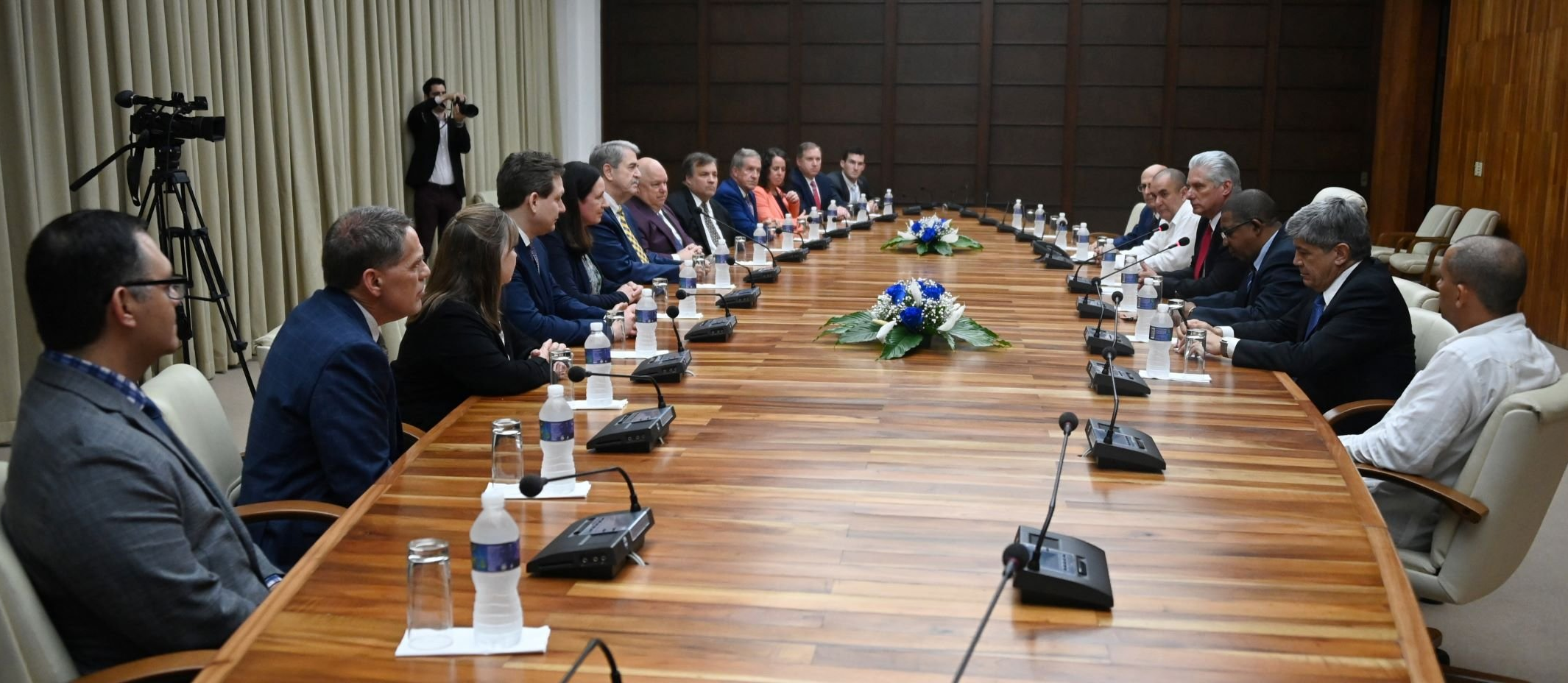
Díaz-Canel in meeting with representatives of the US agricultural sector (Photo:cubaminrex.cu)
By Roberto Morejón
Trade delegation visits could be frequent between Cuba and the United States given their geographic proximity, although the blockade prevents this.
Nevertheless, the persistence of the important agricultural sector in that country to explore possible trade links stands out.
It does so in the midst of the thick legal net inherent to the siege and the harassment of any vestige of negotiation by legislators of alleged Cuban origin.
It is in this context that the visit to Havana of such an important group from the US agricultural sector, organised by NASDA, the National Association of US Departments of Agriculture, takes place.
While businessmen, farmers and other exponents of the North American agricultural industry have travelled to the Caribbean country on several occasions, this is the first time they have done so under the auspices of NASDA.
The Cubans highly value these efforts of northern growers to seek commercial bridges even with so many obstacles and knowing that, as they say, possible sales to the Caribbean archipelago would help business and create jobs there.
Cuba is a market of interest, but 80 percent of the agricultural area is managed by non-state actors, with around three thousand cooperatives.
Businessmen, farmers and officials who have visited Havana in the past, such as the participants in the fourth agricultural conference between the two countries in April 2023, have learned about this.It should be remembered that the activism of the farmers was decisive for the US Congress to pass a law allowing exports to Cuba in 2000.
However, the conditions under this instrument are detrimental, due to the manoeuvres of sectors opposed to bilateral cooperation.This peculiarity is well known to the Secretaries of Agriculture of several states visiting this capital, but they are also aware of the existence of a real potential for careful and mutually beneficial exchanges.
This has been noted by Paul Johnson, co-chair of the US Agriculture for Cuba coalition, now among the travellers.He acknowledges that agricultural relations between the two countries are insufficient and there is a willingness on both sides to do more.But, as Johnson said earlier in Havana, "we are missing opportunities and we are tired of missing them".

